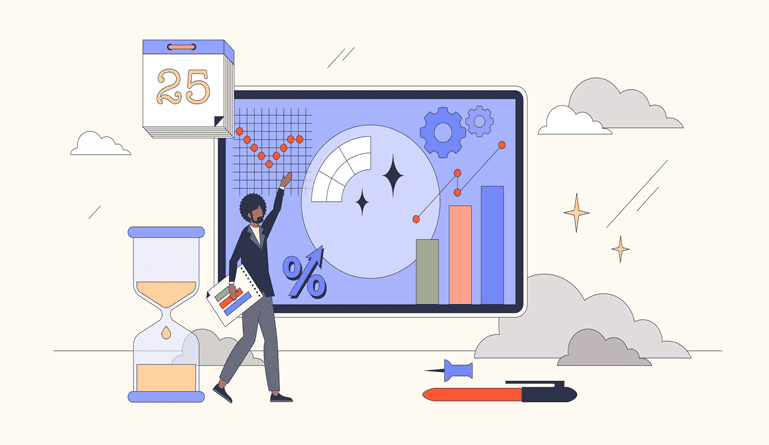Big data analytics has a positive correlation with the future of marketing and sales.
The Wild Potential of Big Data
Big data analytics has been a major topic of recent discussion. The impact of big data on sales and marketing is being put under a microscope. There is a misconception that the information in big data analytics is misused and not valuable.
Big data and marketing align with one another and have shown their worth in the real world. The future of marketing lies within big data analytics, if properly summoned, and the potential is uncanny. Marketing strategists have touched just the surface of big data, and some companies have already shown to have found real above-market growth. Companies that use big data “effectively show productivity rates and profitability that are 5–6 percent higher than those of their peers.”
Big data isn’t all about compressing large amounts of data and marketers using it to increase their profits. A McKinsey analysis revealed, “companies that take a more data-centered approach improve their marketing return on investment by 15–20 percent, given the roughly $1 trillion companies spend annually on marketing globally, that’s $150 billion to $200 billion in additional value.”
The growth of big data is contingent on whether or not the data leads to action. Big data in marketing analytics is an important topic for specialists, and the manner in which individuals use big data will determine their success. In order for big data marketing trends to go from big data to big impact, it is essential to lead big data to action. Most of the discussion is about how to crunch numbers and specific data points, but the real area of focus is turning insights into actions that drive above-market growth.
By analyzing big data and transforming that knowledge into prospective strategies, there is high possibility of profits and efficiency. For big data to work, it must be able to connect to the real world afterward. The Economist Intelligence Unit considers the big data revolution to be imminent as “companies in all industries will strive to collect interpret, and capitalize on vast amounts of new data. Big data will be harnessed to understand consumers, improve healthcare and cut firms’ energy bills.”
There has been criticism that there a sense of sluggishness tied to big data, mainly because some people associate large information and a lack of results as a result of big data. However, the real solution requires much more work on behalf of marketing specialists. There is more to it than just technical challenges. As a report by Accenture noted, that task “goes beyond integrating internal and external data into usable analytics; firms also have to restructure internally, even reshaping corporate culture, to use those insights effectively, teams must have both data science and creative capacity and fit into an organizational structure that can respond to analytics nimbly.”
It is obvious that big data can be a little overwhelming at first, but its future potential is both overwhelming and inevitable if it is properly applied.







